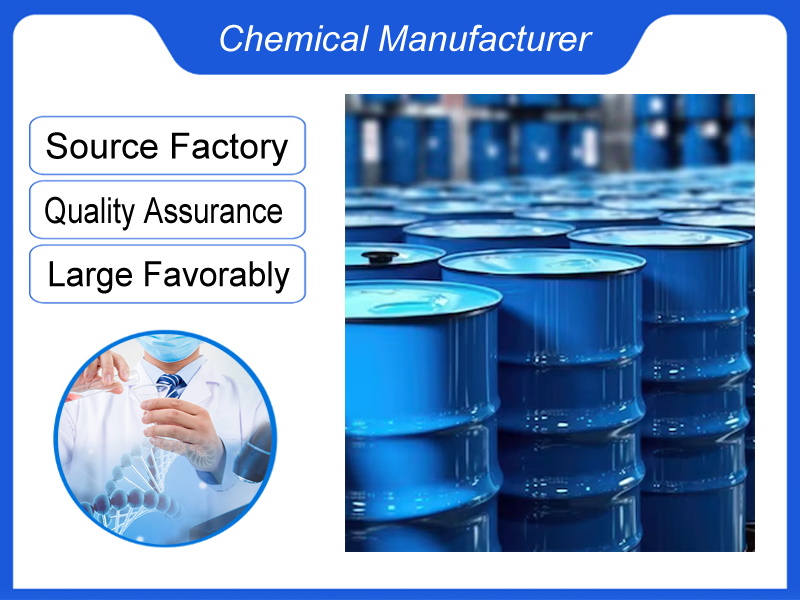
Acetylacetone CAS No. 123-54-6
We are a manufacturer based in China. We specialize in providing high-quality Acetylacetone CAS No. 123-54-6 for industrial clients across various sectors. Whether you need chemicals consultation or technical support, our team is here to help.
Category:Pharmaceutical Materials Own Brand:MT /MOQ:100KG /From China/ B2B only.
Introduction
Product Name
Acetylacetone
Multiple Names
2.4-Pentanedione;
Pentane-2.4-Dione;
Pentane-2.3-Dione;
(3E)-4-Hydroxypent-3-En-2-One;
(3Z)-4-Hydroxypent-3-En-2-One;
Acetyl Acetone;
2.4-Pentane Dione
CAS No. 123-54-6
EC No. 204-634-0
MF No. C5H8O2
MW No. 100.1158
| Name | 2,4-Pentanedione |
| Synonyms | acetyl Pentanedione acetyl-aceton Acetylacetone CH3COCH2COCH3 Acetyl Acetone pentan-2,4-dione 2,4-Pentanedione acetyl2-propanone pentane-2,4-dione acetyl-2-propanon pentane-2,3-dione Acetyl 2-propanone (3E)-4-hydroxypent-3-en-2-one (3Z)-4-hydroxypent-3-en-2-one |
Physico-chemical Properties
| Molecular Formula | C5H8O2 |
| Molar Mass | 100.12 |
| Density | 0.975 g/mL at 25 °C (lit.) |
| Melting Point | -23 °C (lit.) |
| Boling Point | 140.4 °C (lit.) |
| Flash Point | 66°F |
| Water Solubility | 16 g/100 mL (20 ºC) |
| Solubility | H2O: soluble1 in 8 parts |
| Vapor Presure | 6 mm Hg ( 20 °C) |
| Vapor Density | 3.5 (vs air) |
| Appearance | Liquid |
| Color | very deep green-yellow |
| Odor | pleasant odor |
| Exposure Limit | No exposure limit has been set. |
| Merck | 14,81 |
| BRN | 741937 |
| pKa | 8.9(at 25℃) |
| PH | 6 (200g/l, H2O, 20℃) |
| Storage Condition | Store below +30°C. |
| Explosive Limit | 2.4-11.4%(V) |
| Refractive Index | n20/D 1.452(lit.) |
| Physical and Chemical Properties | A colorless or yellowish, flowable, transparent liquid with the odor of an ester that condenses into shiny crystals on cooling. Upon exposure to light, it is converted into a brown liquid and a resin is formed. Melting Point -23 ℃, boiling point 140.5 ℃,139 ℃(94.5kPa), relative density 0.9753, refractive index 1.4494, flash point 40.56 ℃, soluble in water, ethanol, ether, chloroform, acetone, benzene, glacial acetic acid. Industrial products have an unpleasant odor and are easily hydrolyzed to acetic acid and acetone. |
| Use | Used as raw materials and pharmaceutical organic intermediates, can also be used as solvents |
Risk and Safety
| Risk Codes | R11 – Highly Flammable R36/37/38 – Irritating to eyes, respiratory system and skin. R22 – Harmful if swallowed R10 – Flammable R20/21/22 – Harmful by inhalation, in contact with skin and if swallowed. R2017/10/22 – |
| Safety Description | S21 – When using do not smoke. S23 – Do not breathe vapour. S24/25 – Avoid contact with skin and eyes. S36 – Wear suitable protective clothing. S26 – In case of contact with eyes, rinse immediately with plenty of water and seek medical advice. |
| UN IDs | UN 2310 3/PG 3 |
| WGK Germany | 1 |
| RTECS | SA1925000 |
| FLUKA BRAND F CODES | 9-23 |
| TSCA | Yes |
| HS Code | 2914 19 90 |
| Hazard Class | 3 |
| Packing Group | III |
| Toxicity | LC50 (4 hrs) in rats: 1000 ppm (Carpenter) |
It is used as metal extractant to separate trivalent and tetravalent ions, paint and ink desiccant, pesticide insecticide, fungicide, solvent of polymer, reagent for determination of thallium, iron and fluorine, and organic synthesis intermediate.
Advantage of Acetylacetone CAS No. 123-54-6
It is widely used in pharmaceutical, spice, pesticide and other industries
It is an intermediate of organic synthesis
Is an important pharmaceutical raw material
Disclaimer: The above content is for reference and communication only among industry insiders, and does not guarantee its accuracy or completeness. According to relevant laws and regulations and the regulations of this website, units or individuals who purchase related items should obtain valid qualifications and qualification conditions.
If you're ready to take the next step, Leave your message below and we’ll reply soon. 20+ years of chemical manufacturing & export experience, a partner you can trust.





